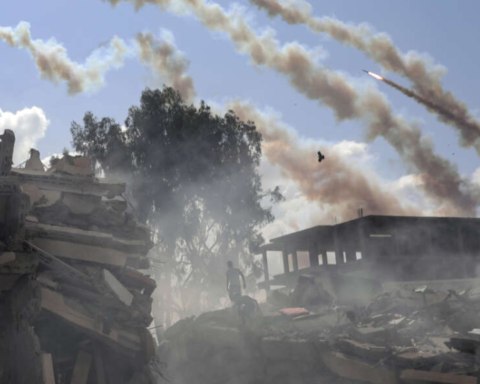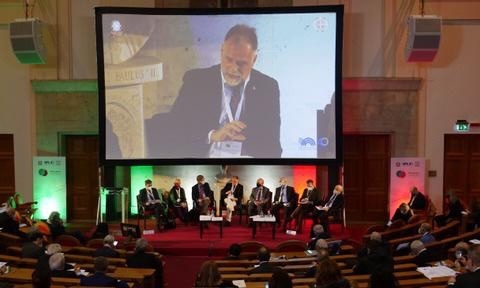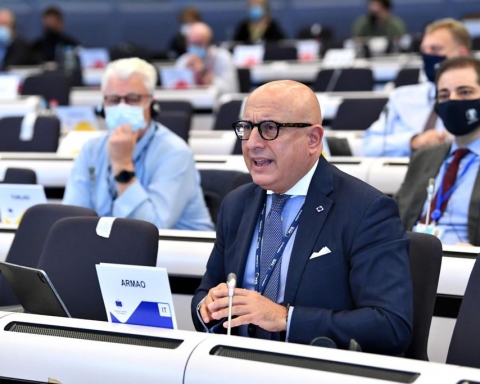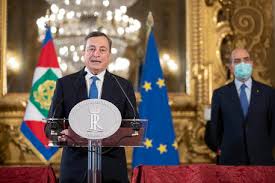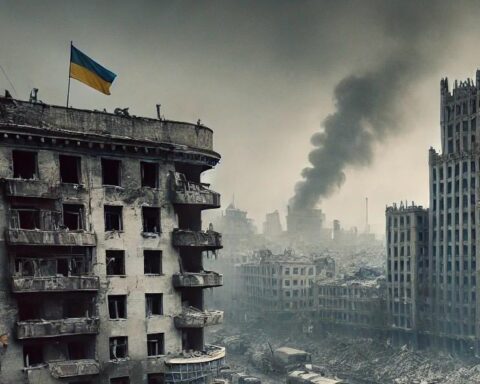Whoever thought that, after the signature of the nuclear deal and the lifting of the international sanctions, Iran would have become a docile and friendly country, well, probably made a wrong calculation. Indeed, in the last weeks, we’ve seen a strong and resolute nation, aimed to restore its position in the international area and to pursue its national interests, no matter what.
[subscriptionform]
[level-european-affairs]
The spotlight is on the Islamic Republic in particular due to its recent ballistic missile tests, which have raised new fear and concern among Western countries and the Gulf monarchies. Last month, indeed, during a military large-scale drill –codenamed Eqtedar-e-Velayet-, the Islamic Revolutin Guards Corps (IRGC) tested two ballistic missiles class Qadr, the Qadr-H and the Qadr-F. Both the missiles were launched from the heights of East Alborz Mountains, northern Iran, hitting targets on the southeast coasts of the country. According to reports, missiles have a range of 1,700 km and 2,000 km respectively.
The international reaction wasn’t long in coming. On the one hand, the condemnation of the United States and Europe, which saw tests as a breach of UNSC resolution 2231; on the other, Russia stated that these tests do not violate the mandate of the document. Even Western powers failed to raise actions against Iran at the UN. It seems that Washington later withdrew its accusation, confirming that the tests do not represent a breach of the resolution.
According to the latter, indeed, “Iran is called upon not to undertake any activity related to ballistic missiles designated to be capable of delivering nuclear weapons, including launches using such ballistic missile technology…”. Questions arise whether these technologies could be able -as Israel affirms- to carry nuclear warheads. However, recent declarations from the Iranian Foreign Minister Javad Zarif state that the country does not have any missile capable of carrying this kind of warheads.
Several Iranian personalities have spoken about this topic. The Expediency Council (EC) Secretary Mohsen Rezaei stressed that the Iranian missile programme only has deterrent purposes and is aimed to exercise the country’s right to self-defence in case of an armed attack. According to the Secretary, it is easily understandable that disarm could not be an option for Iran: indeed, if the country gives up investments in defence, it would be subjected to attack and there are several enemies that could take advantage from this situation.
General Amir Ali Hajizadeh, commander of the air forces of the IRGC, has even a stricter position. The Islamic Republic will continue to strengthen defensive and missile capabilities, which ensure Iran’s security and deter enemies from attacking the country. These enemies are also the ones, which have boosted the country’s defence power for more than 30 years; and US new sanctions just confirm this idea. Missile capabilities are a matter of national security and Iran clearly states that there is no room for negotiation or compromise over it. “No wise individual will negotiate over his country’s security” said the Deputy Foreign Minister for Legal and International Affairs Abbas Araqchi.
It is clear that similar statements can raise concerns, especially among countries such as Israel and the Gulf monarchies. The first has been a target of Iran since Ayatollah Khomeini and the rhetoric of “wiping out” the Jewish country has recently come out several times. The Gulf countries do not support the economic and military growth of a country that not only aims to achieve regional hegemony but also backs and fosters several fundamentalist groups, drivers of instability in the region. Tensions are likely to arise in the coming months: it is to be seen how Arabic countries will react to an Iran not so prone to cooperation and aimed to achieve its national goals, the consequences on the relationship among these actors and the role that powers such as US and Russia could play in fostering or hampering these relations.
Paola Fratantoni
[/level-european-affairs]



